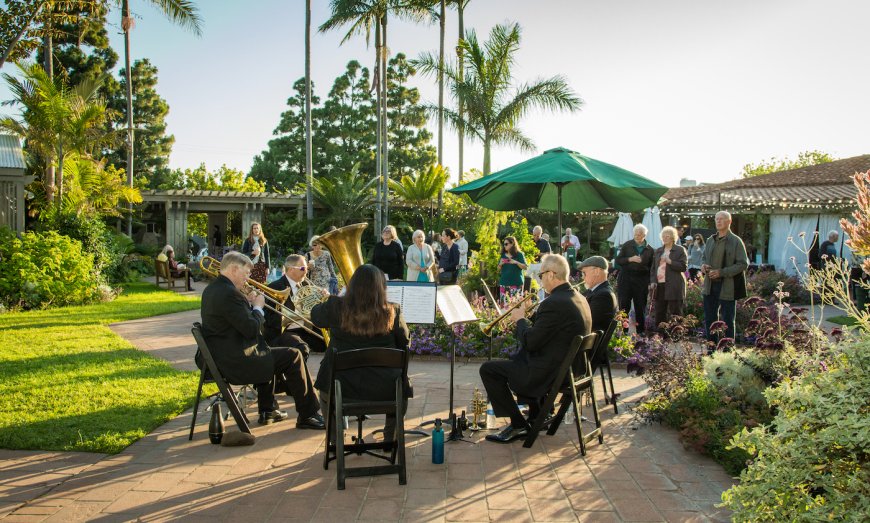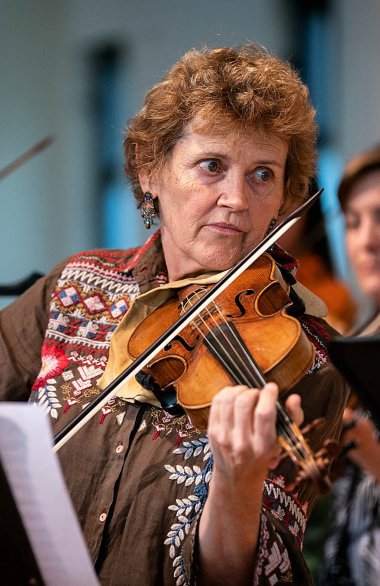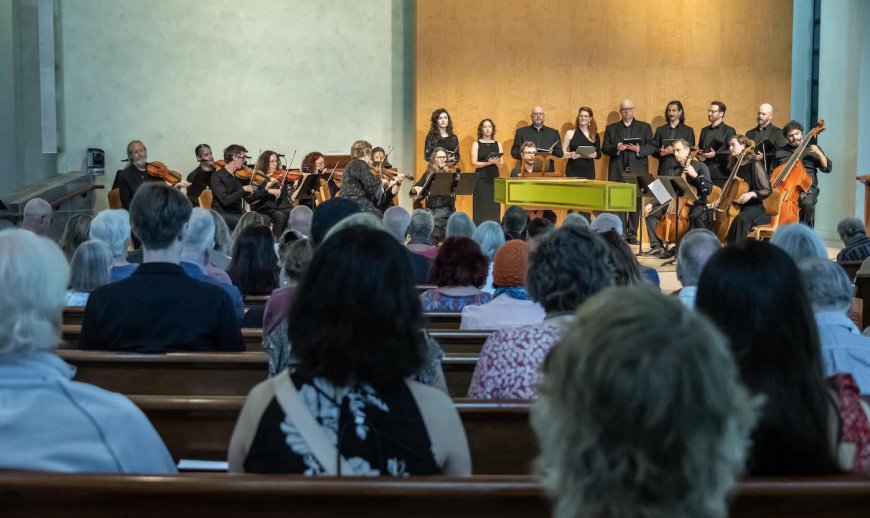
If it’s summer, it’s time for music festivals. And for Elizabeth Blumenstock, violinist and artistic director of the Baroque Music Festival, Corona del Mar, since 2011, this year’s 45th edition, which runs June 22–29, is all about finding special meaning in established routine.
The Baroque Music Festival’s founder, Burton Karson, died in March at age 90. Dedicated to him, this summer’s programing is titled “La Serenissima: Vivaldi for All Seasons,” opening with the composer’s popular The Four Seasons in a performance at Newport Beach’s St. Mark Presbyterian Church and closing at that same venue with a lavish concert of both secular and sacred music.
“There’s a lot of range,” said Blumenstock, an early-music expert who began serving as the festival’s concertmaster in 1997. “That’s a feature of this festival which I have not changed since I became director. We owe Dr. Karson a huge debt of gratitude. He designed a beautiful structure [and] did it selflessly and out of his love for music.”

As for the Vivaldi focus, Blumenstock explained that although the Baroque composer has always been popular among audiences, “among musicians he had a bit of a negative reputation when he was first brought back to performances in the 1900s. There was limited understanding of how to perform his music, and a few unfortunate canards were repeated. Igor Stravinsky [reportedly] said, ‘Vivaldi didn’t write 500 concertos. He wrote the same concerto 500 times.’”
But there’s a whole world to discover in The Four Seasons, Blumenstock said, citing “the magnitude, range of colors, and vivid word painting of some of the [composer’s] little sonnets about the seasons.” She’s set to solo in the four concertos on the festival’s first day.
What other Vivaldi works are in store? “There will be sacred music for orchestra and cantatas on our final program, along with his justly famous Gloria, a splendid piece,” the violinist added. “Except for the lamentable omission of an opera, we will present a number of his popular genres in his full vivacity and color.”
Featured artists are slated to play an evening program with a little Vivaldi on June 23 at St. Michael and All Angels Episcopal Church. There’s also a pair of chamber concerts scheduled to take place on June 25 and 27 within the oasis of Sherman Library and Gardens, a beloved venue since the festival began in 1981.
Only one performance has zero Vivaldi on tap. Instead, Haydn, Mozart, and Luigi Boccherini get the focus in a concert dubbed “Classical Quartets and the Cellist’s Voice.” Here, the music is inspired by the “cellistically” accomplished Frederick William II, the nephew and successor of Frederick the Great, a notable patron of the arts.
As usual, Blumenstock, who is active with ensembles including Philharmonia Baroque Orchestra and American Bach, will be playing her Andrea Guarneri violin, made in Cremona in 1660. “It’s lovely to have a historical object,” she enthused. “It’s 365 years old and has a much longer life than any of us could hope to have. I love it for its clarity, sweetness, and brightness.”

And so do the audiences who’ve been coming to the festival year after year. “We have quite a few subscribers,” said the violinist. “People from Los Angeles, San Diego, and everywhere in between attend. A few from the Bay Area also come down to enjoy our concerts, so it’s a pretty wide appeal — and some even come from out of state.
“One of the things I admire and love about this festival is that it’s a community,” Blumenstock continued. “What I want audiences to take away is how much they enjoyed our performances, how communicative the music was, how much they could feel that [connection]. Culturally, you can go to great concerts, but you don’t necessarily know anyone there.
“This,” stressed Blumenstock, “is a devoted family that we built over the decades. People appreciate getting to know us, and they enjoy this sense of community.”




